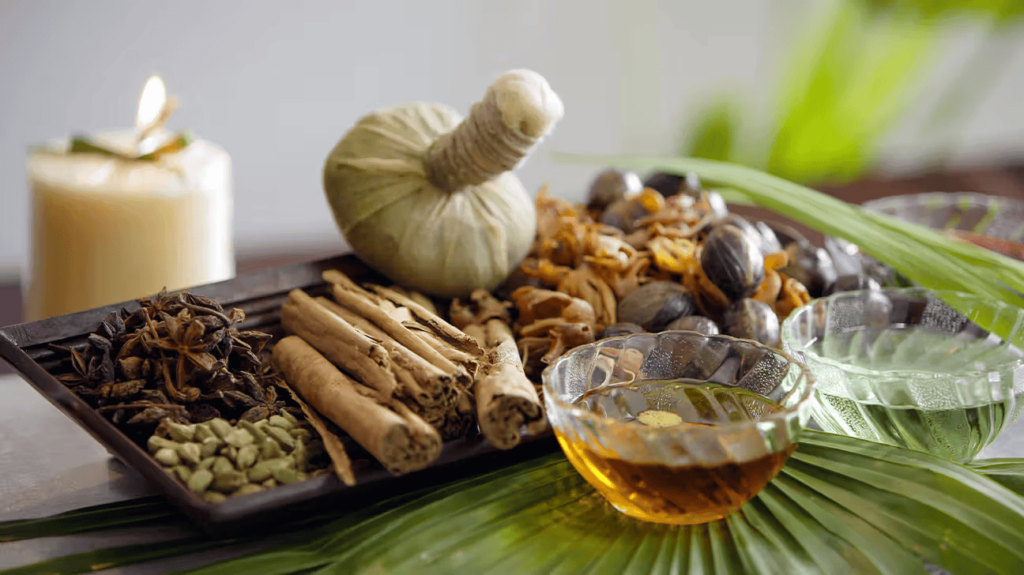Ayurvedic Remedies for Common Ailments: A Doctor's Perspective
Ayurveda, one of the world’s oldest holistic healing systems, has been practiced for over 5,000 years. Rooted in the Indian subcontinent, it is based on the belief that health and wellness depend on a delicate balance between the mind, body, and spirit. As modern medicine advances, Ayurveda continues to be a trusted approach for managing common ailments naturally.
Understanding Ayurveda: The Basics
Ayurveda revolves around three primary energies, or doshas: Vata, Pitta, and Kapha. Each dosha governs specific physiological and psychological functions. An imbalance in these doshas is believed to lead to illness. Ayurvedic treatments aim to restore balance through lifestyle adjustments, herbal remedies, dietary recommendations, and therapeutic practices.
The Ayurvedic Way to Deal with Stress:
1. Common Cold and Cough
old or cough is often caused by seasonal changes or weakened immunity. Ayurveda suggests remedies that boost immunity and soothe symptoms.
- Tulsi (Holy Basil): Known for its antibacterial and antiviral properties, Tulsi tea helps alleviate respiratory issues. Chewing fresh Tulsi leaves can also provide relief.
- Ginger: A natural anti-inflammatory agent, ginger tea with honey is a time-tested remedy for sore throats and congestion.
- Turmeric Milk: Turmeric’s active compound, curcumin, has immune-boosting and anti-inflammatory benefits. Consuming warm milk with a pinch of turmeric is highly effective.
2. Digestive Issues
Indigestion, acidity, and bloating are common complaints that Ayurveda addresses through natural remedies.
- Ajwain (Carom Seeds): Known for its digestive properties, ajwain water helps relieve gas and indigestion. Simply boil a teaspoon of carom seeds in water and drink it warm.
- Triphala: A blend of three fruits—Amla, Haritaki, and Bibhitaki—Triphala improves digestion, detoxifies the body, and promotes regular bowel movements
- Buttermilk: Spiced buttermilk with roasted cumin and rock salt is an excellent remedy for acidity and bloating.
3. Skin Problems
Skin health reflects internal well-being, and Ayurveda emphasizes remedies that detoxify the body and nourish the skin.
- Neem: With its antibacterial and antifungal properties, Neem paste or Neem-infused water can help treat acne and eczema.
- Aloe Vera: Known for its cooling and hydrating effects, Aloe Vera gel soothes irritated skin and promotes healing.
- Sandalwood: Sandalwood powder mixed with rose water can be applied as a face pack to reduce blemishes and improve skin tone.
4. Stress and Anxiety
In today’s fast-paced world, stress and anxiety have become common ailments. Ayurveda offers holistic solutions to calm the mind and enhance emotional well-being.
- Ashwagandha: This adaptogenic herb reduces cortisol levels, helping the body manage stress effectively.
- Brahmi: Known for its cognitive-enhancing properties, Brahmi supports mental clarity and relaxation.
- Meditation and Pranayama: Practicing deep breathing exercises and mindfulness techniques helps balance the mind and reduces anxiety.
5. Joint Pain and Inflammation
Arthritis and joint pain can significantly impact one’s quality of life. Ayurveda suggests remedies that reduce inflammation and strengthen joints.
- Moringa: Rich in anti-inflammatory compounds, Moringa leaves or powder can alleviate joint pain.
- Sesame Oil: Regular massage with warm sesame oil improves blood circulation and relieves stiffness.
- Turmeric: Consuming turmeric with black pepper enhances its absorption, providing relief from inflammation.
6. Hair Fall and Dandruff
Ayurveda addresses hair-related issues by focusing on nourishment and scalp health.
- Bhringraj: Often referred to as the “King of Herbs” for hair, Bhringraj oil strengthens hair follicles and prevents hair fall.
- Amla (Indian Gooseberry): Rich in Vitamin C, Amla powder or juice nourishes the scalp and promotes hair growth.
- Fenugreek Seeds: Soaked and ground fenugreek seeds can be applied as a hair mask to combat dandruff and dryness.
Ayurveda offers a treasure trove of remedies for common ailments, emphasizing natural healing and holistic wellness. By integrating Ayurvedic practices into daily life, individuals can address health concerns effectively while promoting long-term well-being. However, it is crucial to approach these remedies with guidance and mindfulness to achieve the best outcomes.
In a world leaning towards modern medicine, Ayurveda stands as a testament to the power of nature and ancient wisdom. By bridging traditional practices with modern science, we can embrace a balanced approach to health and healing.





